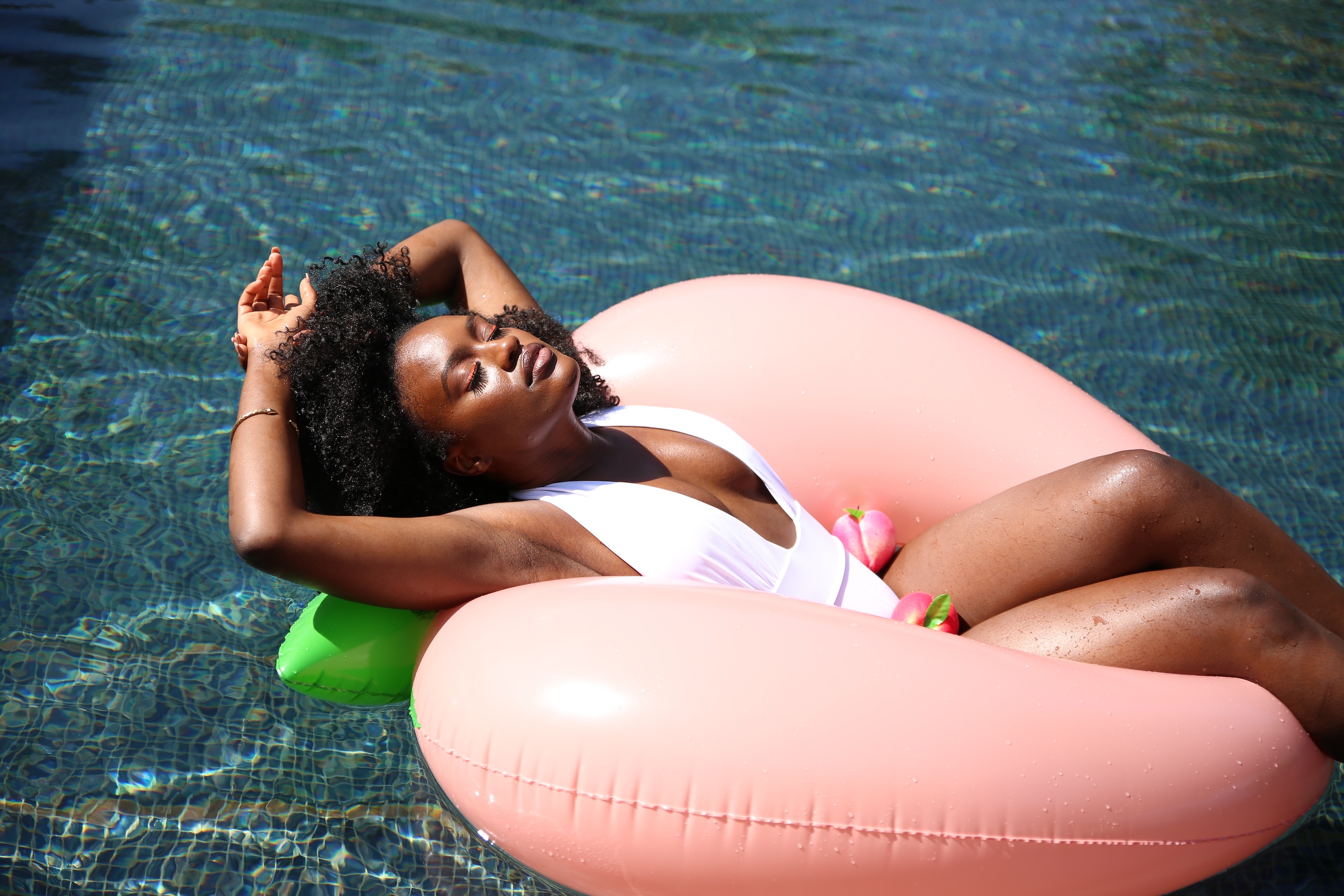If you’ve been waxing, sugaring, threading, or even epilating for years, you probably know the routine by heart: a little bit of smoothness… followed by bumps, dark spots, and those dreaded ingrown hairs making their comeback way too soon.
And if you’ve got melanated skin and coarse, curly hair, the struggle is real. Add in skin conditions like folliculitis or Hidradenitis Suppurativa (HS), and the irritation isn’t just annoying—it’s painful.
It doesn’t have to be that way. Let’s get into why laser hair removal is the upgrade your skin’s been waiting for, and why it’s time to finally put the wax pot away for good.
Waxing vs. Laser: What It Really Costs You
At first glance, waxing feels like a decent compromise—less work than shaving every day, but not as big of an investment as laser.
Here’s the thing: it’s still a never-ending cycle.
With waxing, you’re paying for:
- Monthly (or bi-weekly) appointments
- “Sensitive skin” wax formulas that can still leave you red and irritated
- Post-wax products to calm bumps and burning
- Years—literally years—of repeating the same process
When you start adding it up, waxing easily costs thousands over time. And that’s before you count the hours you spend scheduling, rescheduling, and sitting in the chair.
Laser is different. Yes, the upfront price is higher, but after a full series of sessions (most of our clients see major changes within 4–6), you might only need a quick touch-up once or twice a year. You’re not just paying for less hair—you’re paying for more time, less irritation, and peace of mind.
Why Waxing Can Be Rough on Skin of Color
Here’s the part people don’t talk about enough: waxing can be way harsher on melanated skin, especially if you have conditions like folliculitis or HS.
Why?
- It triggers flare-ups: The act of pulling hair out of the follicle can cause swelling, inflammation, and even infection—making folliculitis worse.
- It aggravates HS: For those living with Hidradenitis Suppurativa, that extra irritation can mean more lesions, more pain, and slower healing.
- It fuels ingrowns: Curly hair naturally wants to curl back into the skin, especially after being yanked out from the root.
- It strips the skin barrier: Even “gentle” wax removes a layer of skin, leaving it more vulnerable to bacteria.
- It darkens the skin: Every time you get a bump or flare-up, melanated skin responds with more pigment—meaning dark marks stick around.
When your skin is already sensitive or reactive, this cycle can make it harder to heal and keep an even tone.
Why Laser Works Better (and Gentler) for Skin of Color with Folliculitis or HS
We use the Candela GentleMax Pro Nd:YAG laser, which is specifically designed to safely treat deeper skin tones. The technology goes past your skin’s pigment to target the hair follicle directly—without damaging the surrounding skin.
For people with folliculitis or HS, that’s huge.
Here’s what happens when you make the switch:
- Fewer flare-ups: By destroying the follicle’s ability to regrow, you remove one of the main triggers for folliculitis and HS.
- No more ingrown battles: Less regrowth means fewer hairs getting trapped under the skin.
- Even skin tone: Once the cycle of irritation stops, your skin can finally heal and those dark marks start to fade.
- More comfort, more confidence: You’re not avoiding the beach, hiding your underarms, or planning outfits around your flare-ups.
Client Love:
“By my first appointment, I noticed significant changes in hair growth and skin texture—so much smoother and bump-free!” – Real Client via Google
Time to Break Up with Your Wax Lady?
If you’re tired of pulling hair just for it to grow back—along with all the irritation and pain—it might be time to switch to something that actually helps your skin heal.
At PeachFuzz, we specialize in laser hair removal for skin of color and work with a lot of clients who have folliculitis and HS. We’ve seen first-hand how life-changing it can be to finally break that cycle.
More glow, less grow. That’s the PeachFuzz promise.
Book your consultation today and start your journey to smoother skin, fewer flare-ups, and a lot more confidence.




-5.jpg)